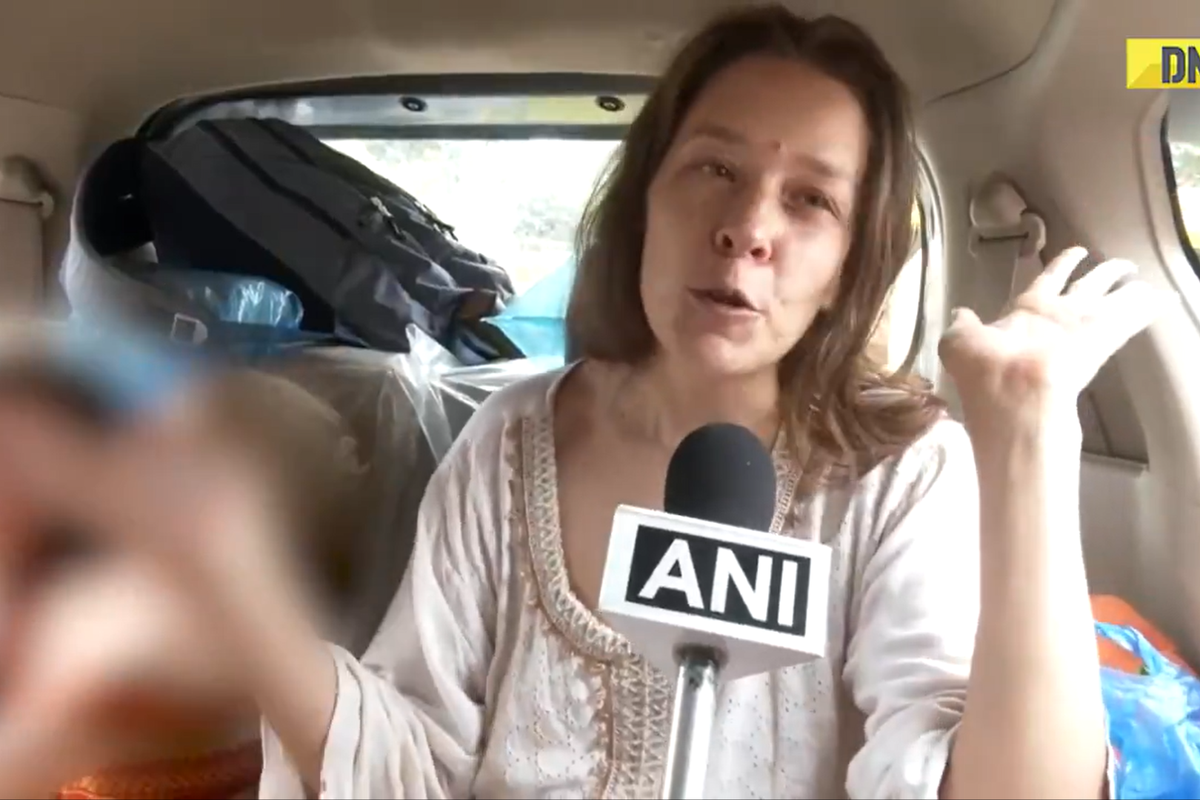India’s top court chides Israeli man after Russian woman and her children found living in cave
By Alisha Rahaman Sarkar
Copyright independent

The Supreme Court of India on Monday questioned an Israeli man who claimed to be the father of the two children who were found to be living with their Russian mother in a cave in Karnataka state.
Nina Kutina, 40, and her children, aged six and four, were found living inside a cave by officers on 9 July during a routine patrol of Ramatirtha Hill, a popular coastal tourist spot near Gokarna. The family had no valid visas and was undocumented in the country, the police said.
The bench of Justices Surya Kant and Joymalya Bagchi was hearing a petition filed by Dror Shlomo Goldstein before the apex court challenging a Karnataka High Court order that had permitted New Delhi to issue travel documents last week to the woman and her children.
The woman and her minor daughters left India on 28 September after spending almost three months at a foreigners’ detention centre, the BBC reported. Ms Kutina was also accompanied by her minor son from a separate relationship, who was found living in Goa.
Mr Goldstein moved the Karnataka High Court seeking joint custody of the girls and urged the court to stop their deportation. The Israeli national had registered a police complaint in Goa’s Panaji last year after he was unable to trace his children, according to NDTV.
During the hearing, Justice Kant asked the petitioner’s counsel: “What is your right? Who are you?” To this question, the counsel said the petitioner was the father of the children.
The bench asked the petitioner to “show us any official document that you are declared the father”.
“Why should we not direct your deportation?” asked Justice Kant.
Justice Bagchi criticised the petitioner, observing: “Publicity litigation… What were you doing when your children were living in a cave?” The Israeli national was further asked: “What were you doing staying in Goa,” before allowing Mr Goldstein to withdraw the petition.
Before concluding, Justice Kant remarked: “This country has become a haven… anybody comes and stays.”
Ms Kutina has defended her decision to live in the wild with her daughters and said they were healthy and happy in the forest. She was reluctant to leave the cave as officers tried to warn her about the dangers of living in the wild, the police said.
“It is nothing but her love for adventure that brought her here,” police officer Sridhar SR told reporters. He added that Ms Kutina told the police she had worked as a tutor of Russian in Goa and spent time in the cave meditating by candlelight, feeding her children, painting, singing, and reading books.
“We were not dying, and I did not bring my children, my daughters, to die in jungle,” Ms Kutina told ANI news agency. “They did not feel bad, they were very happy, they swam in waterfall, they lived, had very good place for sleeping, a lot of lessons with art making, we made from clay, we painted, we ate good, I was cooking with gas, very good and tasty food.”
Kutina says they were not living far from civilisation. She chose that location because it is very close to a village where she bought supplies.
“It’s very big and beautiful cave, and not small, and it’s like it has window to look to ocean.”
Russian by birth, Ms Kutina has told Indian news agencies that she has not lived in Russia for 15 years. She has travelled extensively – Costa Rica, Bali, Thailand, Malaysia, Ukraine, Nepal – and says she gave birth to four children, including a son who died in a road accident in Goa last year. Her other son, aged 11, lives in Russia.
Ms Kutina and her children were found with only their belongings, including plastic mats, a few clothes, some grocery items, and packets of instant noodles. There was no electricity or running water, but Ms Kutina says they were content. Days were spent swimming in a nearby waterfall, cooking simple meals, and making art from clay and natural materials.
The entrance to their cave had been curtained off with colourful saris. Videos shot by police show the children smiling and dressed in bright Indian clothes, seemingly at ease. Ms Kutina told reporters that they had access to groceries from a nearby village and that she made sure her daughters were well-fed and engaged.